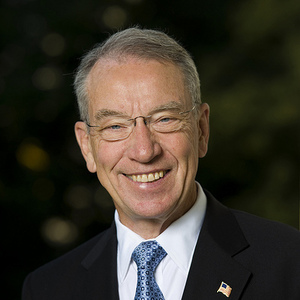Senators advocate for robust 2017 RFS rule

March 24, 2016
BY Erin Krueger
On March 23, a group of 19 senators sent a letter to U.S. EPA Administrator Gina McCarthy, asking the agency to set high renewable volume obligations (RVOs) in its 2017 renewable fuel standard (RFS) rulemaking.
Within the letter, the senators note they were pleased with the EPA’s decision to increase the RVOs in the final RFS rule for 2014, 2015 and 2016. However, they remain concerned that the agency used distribution infrastructure as a factor in setting blending targets. “The lack of distribution infrastructure was explicitly rejected by Congress as a reason to grant a waiver when the statute was adopted in 2005,” wrote the senators.
Advertisement
Advertisement
The letter quotes EPA Assistant Administrator for Air and Radiation Janet McCabe as stating “we need to get the program back on track.” However, the senators argue that the final rule for 2014, 2015 and 2016 “did not get the program back on track, and as a result, it is not generating growth in the biofuel sector. Since the proposal was first leaked in the fall of 2013, not a single new cellulosic project has broken ground in the United States and many planned or previously announced projects have been halted. In the meantime, new investments in cellulosic projects continue to emerge in China, Europe, and Brazil. The final rule for 2014, 2015 and 2016 did not change this trend.”
The senators stress the EPA should reverse course and release a 2017 rule that follows congressional intent. “A strong RFS makes our country more energy secure, increases competition and consumer choice in our transportation sector, and ultimately strengthens our economy. We need a strong RFS, and we need more biofuels. We expect that you will get the program ‘back on track,’ and we look forward to seeing a proposed rule released on time that removes the distribution waiver and re-establishes the United States as a leader in the biofuel sector,” they wrote.
Advertisement
Advertisement
Growth Energy and the Renewable Fuels Association released a statement on behalf of the biofuels industry commending the senators for their unwavering support for a strong and robust RFS. “Getting the RFS back to the statutory levels congress intended is critical in moving our nation forward to energy independence by using cleaner burning, homegrown biofuels, like ethanol, which reduce harmful emissions and our reliance on foreign oil imports,” said the biofuel groups. “As important, returning to the statutory levels intended by congress will provide the necessary certainty producers need to move forward with critical business decisions.”
The letter was signed by Sens. Charlies Grassley, R-Iowa; Amy Klobuchar, D-Minn.; John Thune, R-S.D.; Richard Durbin, D-Ill.; Mark Kirk, R-Ill.; Al Franken, D-Minn.; Joni Ernst, R-Iowa; Heidi Heitkamp, D-N.D.; Deb Fischer, R-Neb.; Martin Heinrich, D-N.M.; Michael Rounds, R-S.D.; Claire McCaskill, D-Mo.; Roy Blunt, R-Mo.; Debbie Stabenow, D-Mich.; John Hoeven, R-N.D.; Tammy Baldwin, D-Wisc.; Sherrod Brown, D-Ohio; Gary Peters, D-Mich.; and Joe Donnelly, D-Ind.
Related Stories
President Trump on July 4 signed the “One Big Beautiful Bill Act.” The legislation extends and updates the 45Z credit and revives a tax credit benefiting small biodiesel producers but repeals several other bioenergy-related tax incentives.
CARB on June 27 announced amendments to the state’s LCFS regulations will take effect beginning on July 1. The amended regulations were approved by the agency in November 2024, but implementation was delayed due to regulatory clarity issues.
SAF Magazine and the Commercial Aviation Alternative Fuels Initiative announced the preliminary agenda for the North American SAF Conference and Expo, being held Sept. 22-24 at the Minneapolis Convention Center in Minneapolis, Minnesota.
Saipem has been awarded an EPC contract by Enilive for the expansion of the company’s biorefinery in Porto Marghera, near Venice. The project will boost total nameplate capacity and enable the production of SAF.
Global digital shipbuilder Incat Crowther announced on June 11 the company has been commissioned by Los Angeles operator Catalina Express to design a new low-emission, renewable diesel-powered passenger ferry.
Upcoming Events










